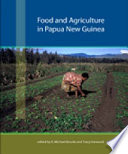Author
Stanley, Leonardo E.
Year
2018
Publisher
Anthem Press
Type
BOOK
Category
Business & Economics
Language
English
Pages
260
ISBN
978-1-78308-675-7
Last Update
09-Sep-2024
Keywords
BUSINESS & ECONOMICS / Economics / Comparative;BUSINESS & ECONOMICS / International / Economics;POLITICAL SCIENCE / Political Economy
Related
See More
The Asian Studies Parade, Archival; Biographical; Institutional and Post-Colonial Approaches

Gleichstellungspolitik öffentlicher Arbeitgeber

Food and Agriculture in Papua New Guinea

Discourses of Purity in Transcultural Perspective (300–1600)

The Cultural Legacy of the Pre-Ashkenazic Jews in Eastern Europe

Contemporary Indonesian Film